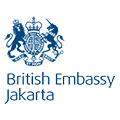Dreams Under Humma – Stories from Women-led Businesses in Central Sumba
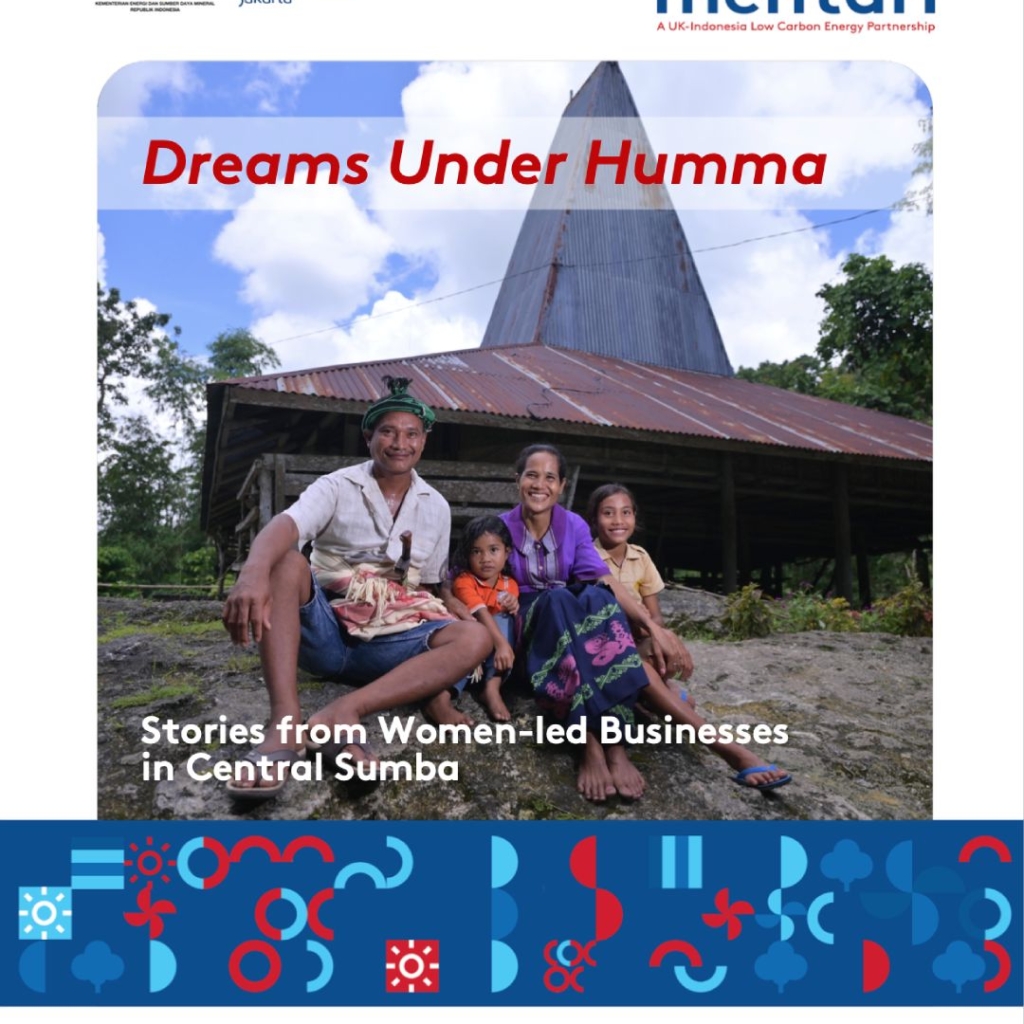
This case study is a set of stories from women-led businesses in Central Sumba. Before, during, and after commissioning the installation of two units of solar PV off-grid in Mata Redi and Mata Woga villages in 2022, MENTARI introduced productive uses of energy through entrepreneurship training and gender training to participants who are mostly women. […]
MENTARI Newsletter Special Edition: Sumba
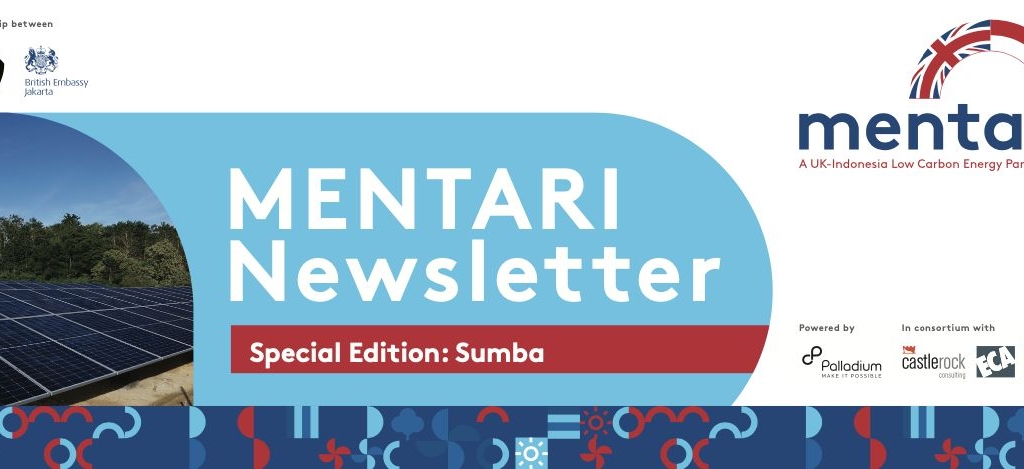
Accelerating off-grid projects using renewable energy will increase access to electricity and boost economic growth at a local level, alleviating poverty and benefitting Indonesians across the archipelago. With help from our international and local partners, we can achieve this goal by building local capacities and developing a favourable regulatory environment. This newsletter explores some of […]
Pedoman Perhitungan Biaya Teknologi Hibrida: Pembangkit Energi Terbarukan dan Diesel
(Guidelines for Calculation of Hybrid Technology Costs: Renewable Energy and Diesel Generators)
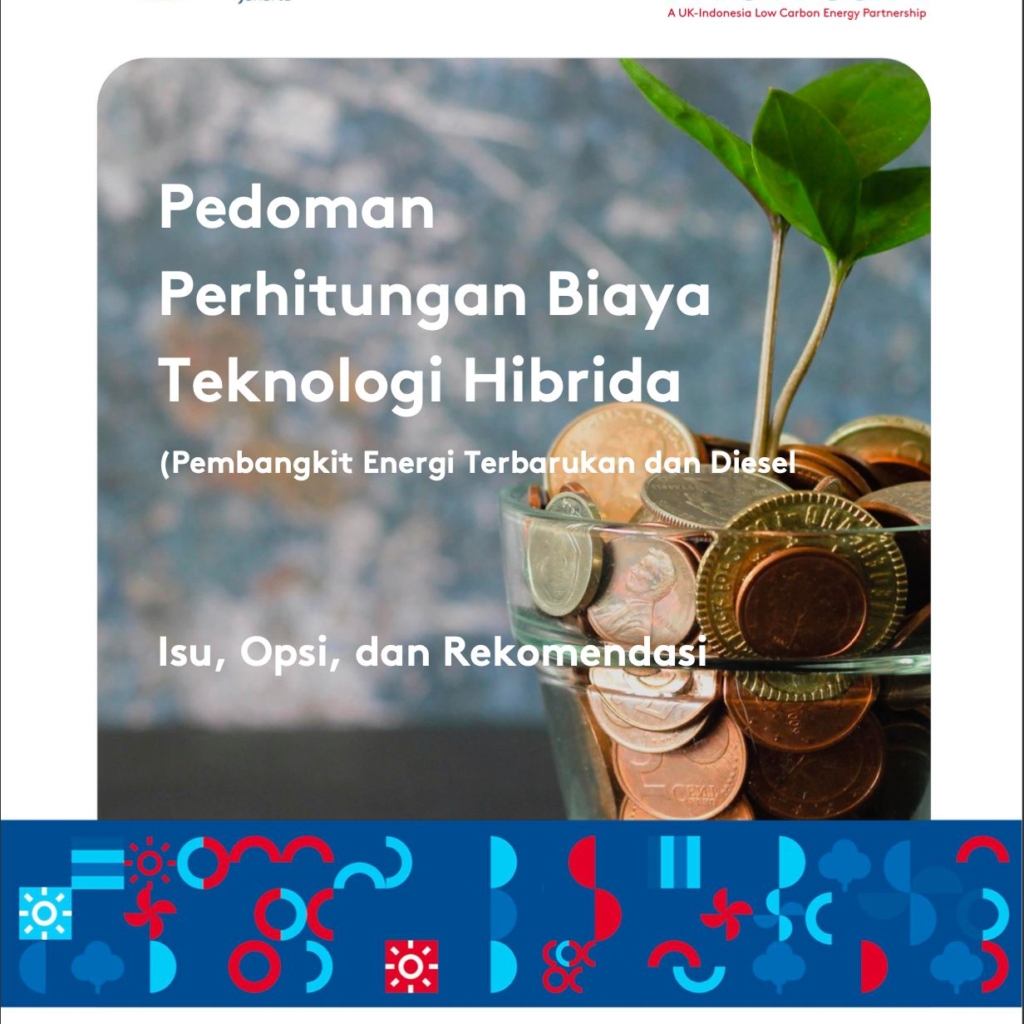
This guideline for a Hybrid Technology Cost Calculation conveys four basic reasons why every government agencies (including State Owned Enterprises) need to prepare a Hybrid Technology Cost Calculation – Renewable Energy and Diesel Generation to procure goods and services. Pedoman Perhitungan Biaya Teknologi Hibrida: Pembangkit Energi Terbarukan dan Diesel Download 0 downloads5.15 MB
Pedoman Pendirian dan Pengoperasian BUM Desa Berbasis Energi Terbarukan yang Berkelanjutan, Tanggap Gender dan Inklusif. Studi Kasus Desa Mata Redi, Kecamatan Katikutana, Kabupaten Sumba Tengah
(Guidelines for the Establishment and Operation of Renewable Energy-Based Village-Owned Enterprise that is Sustainable, and Gender Responsive and Inclusive. A Case Study of Mata Redi Village, Katikutana Sub-district, Central Sumba District)
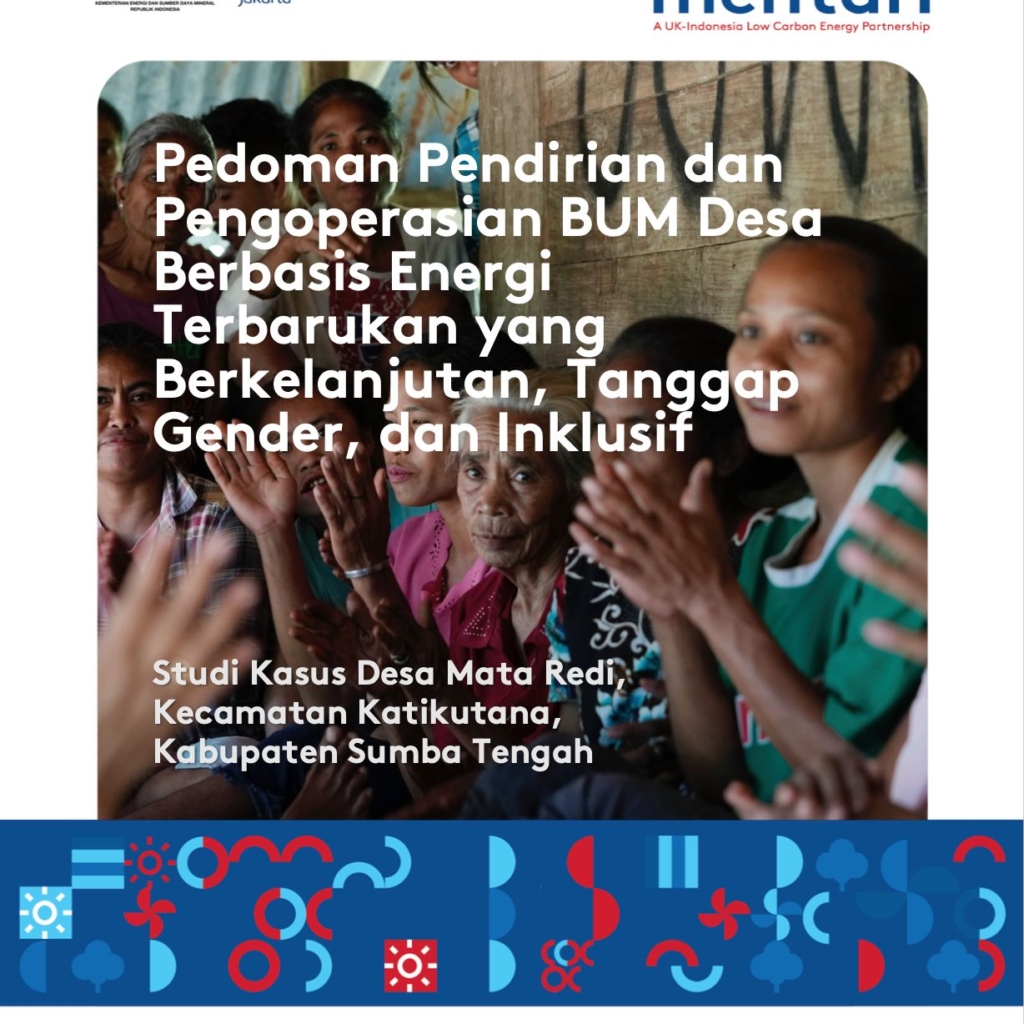
This guideline explains the establishment and management of village-owned enterprises that are renewable energy-based and gender responsive and inclusive which involves all elements of the community, including women and vulnerable groups. This book consists of two parts, namely an introduction to village-owned enterprises and nine stages in establishing and managing village-owned enterprises with a case […]
Panduan Tata Kelola PLTS Terpadu Offgrid yang Berkelanjutan, Tanggap Gender dan Inklusif. Standar Operasional Prosedur (SOP) untuk BUM Desa dan Pemerintah Daerah
(Guidelines for the Governance of Integrated Offgrid Solar Photovoltaic that is Sustainable, and Gender Responsive and Inclusive. Standard Operating Procedure for Village-Owned Enterprise and Regional Government)
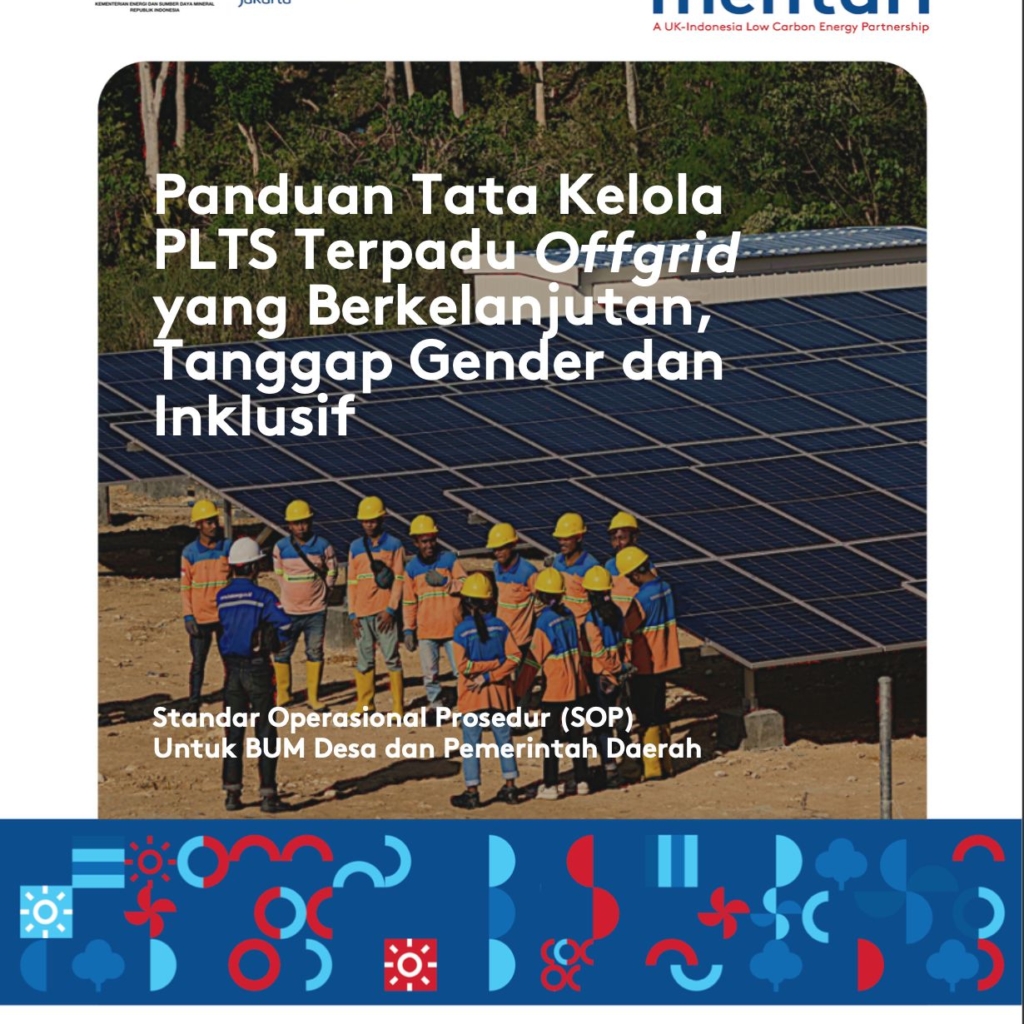
This guideline provides an understanding and direction of the importance of integrated offgrid solar photovoltaic governance managed by village-owned enterprises. Not only village-owned enterprises, but the village government and regional government can also use this guideline to support the sustainability of electricity services to the community continuously. This guide supports the acceleration of energy transitions in […]
Feasibility Study: Incentivising Demand Load through Productive Use of Energy for Rural Electrification in Mata Redi, Central Sumba District, East Nusa Tenggara Province

This feasibility study on the productive use of energy was conducted based on an off-grid solar PV system of 95 kWp in Mata Redi and Mata Woga villages, Central Sumba. The study calculated the excess power through further simulation. It also explores the technology options and prioritises technologies with the most potential by improving the […]
UK Government to provide IDR 21 billion through MENTARI Programme for a blended finance vehicle with PT SMI to three Hydropower Plants in Indonesia
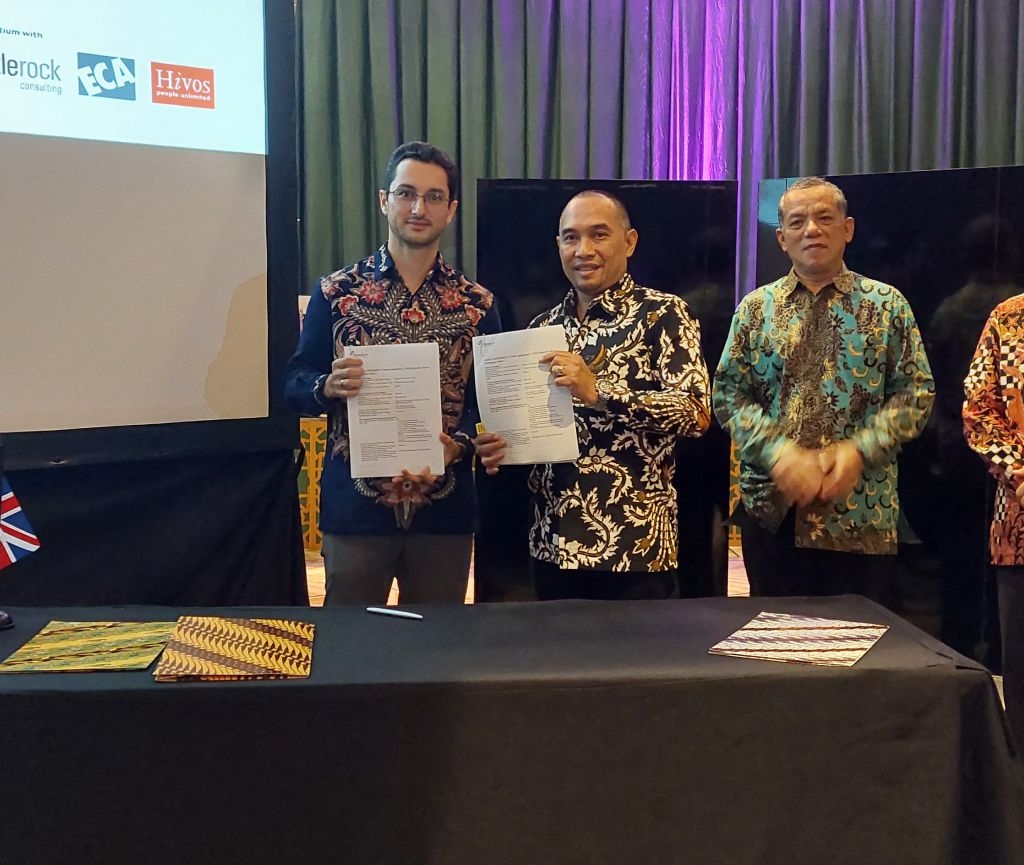
On [Tue, 28 March 2023], the MENTARI, UK-Indonesia Low Carbon Energy Partnership and PT Brantas Energi will sign an agreement to support three of PT Brantas Energi’s new hydropower renewable energy projects. These innovative schemes will have a total capacity of 7 MW and will contribute to Indonesia’s efforts to accelerate low carbon energy. The […]
Ringkasan Kebijakan – Percepatan Pelaksanaan Komersial Off-Grid Energi Terbarukan di Indonesia
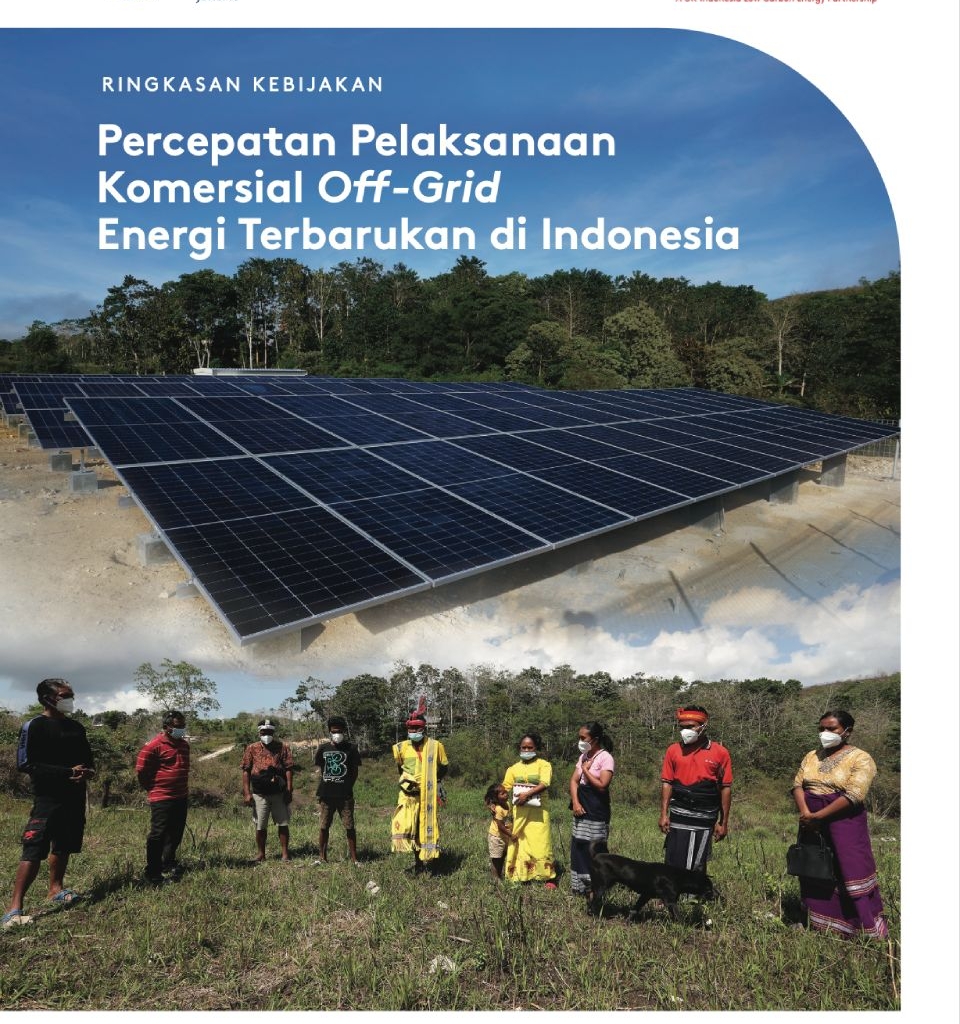
This policy brief describes the challenges of the electrification program in the remote area, such as long distances between houses and unequal distribution, low demand, uncertain growth, and difficulty accessing the supply chain. Another challenge is the gap in legal and regulatory frameworks in supporting commercial off-grid electrification programs. This summary proposes a new off-grid […]
Kajian Kebijakan – Penguatan Kapasitas Rantai Pasok Domestik Energi Terbarukan
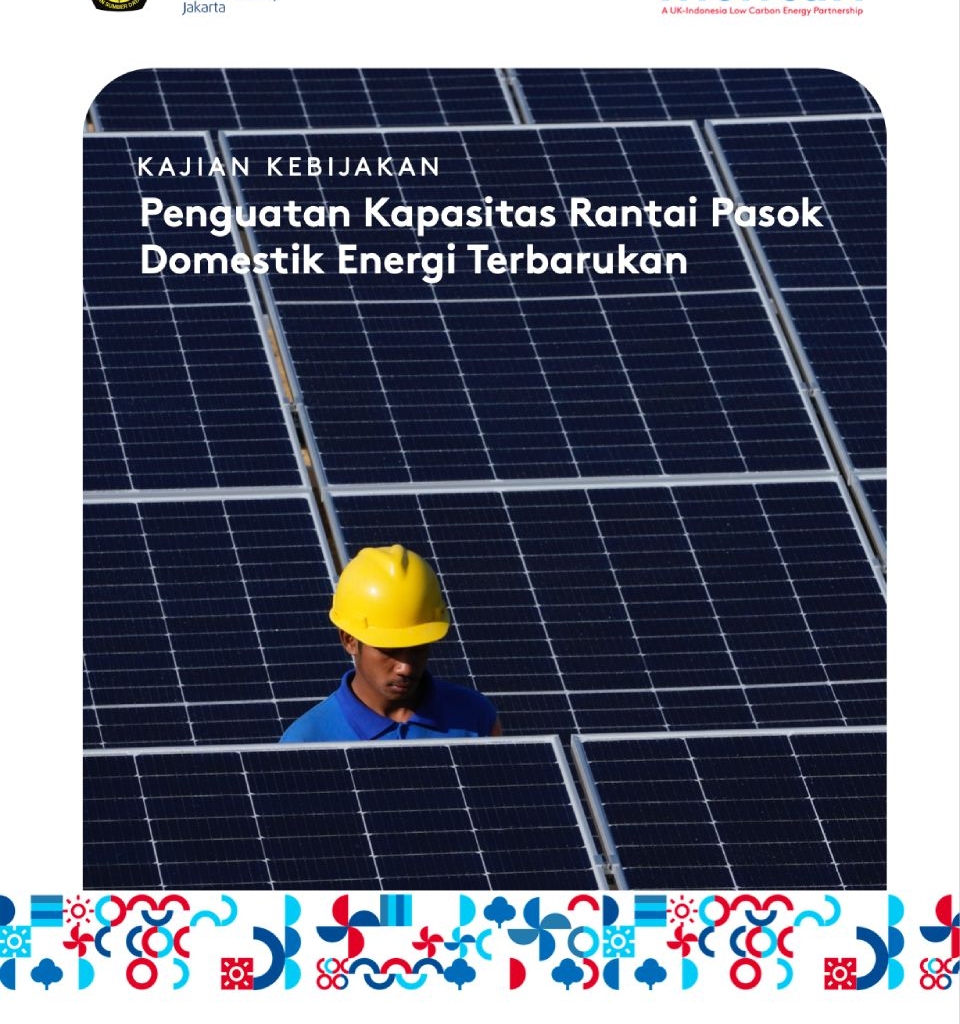
Renewable energy implementation is expected to meet high demand and production capacity. This implementation is supported by one of the main supporting policies, which is the implementation of the local content requirement to strengthen the domestic supply chain of renewable energy. This study explains the importance of the local content requirement; the implications and challenges […]
In-depth Assessment of Commercial Off-grid Renewable Energy Business Models
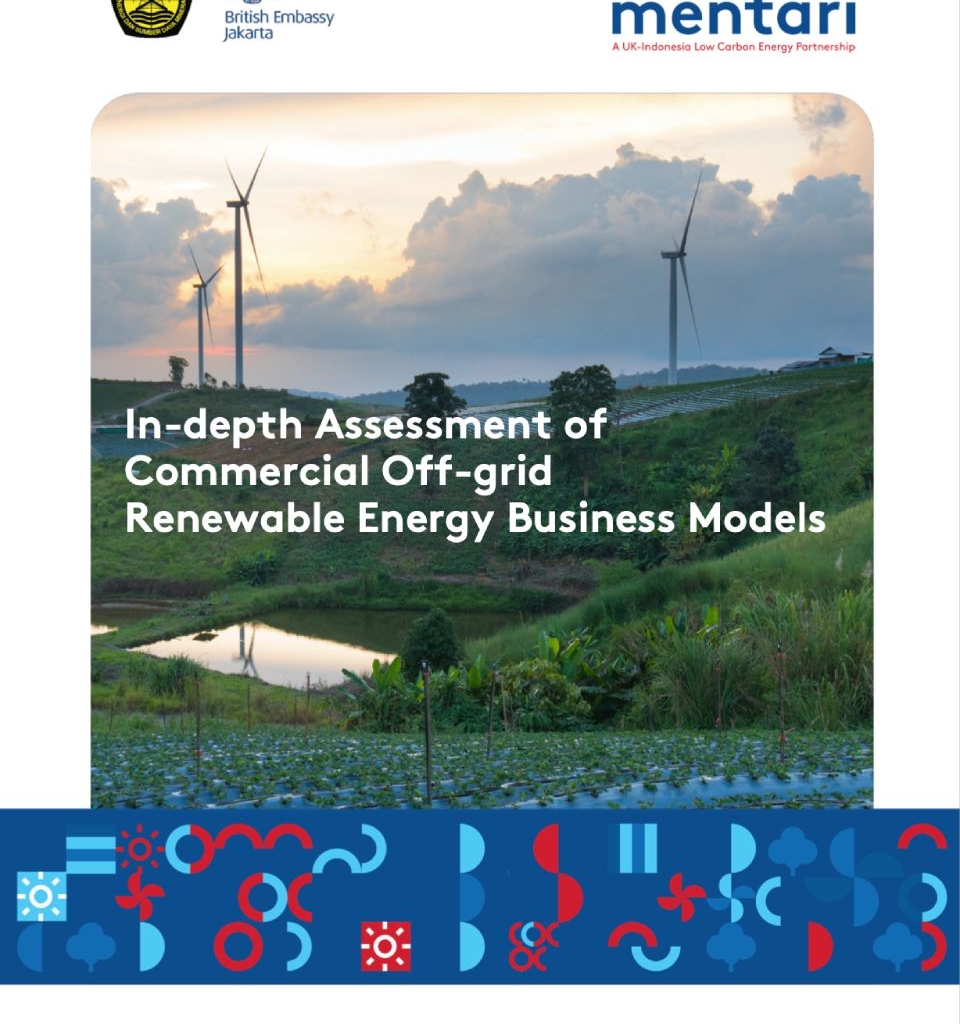
This study assesses three renewable energy business models that are selected as potential enablers for off-grid commercial development: the micro independent power producer (micro-IPP) model, the joint operation cooperation contract (KSO) model, and the local government-owned-private enterprise partnership (BUMD-partnership) model. We assess the three models from different perspectives: legal, regulatory and institutional gaps, economic and […]

